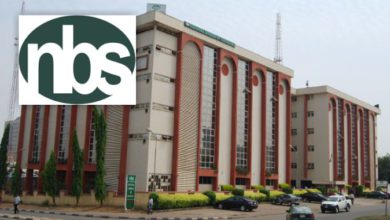
- 2022 has been a critical year for the Nigerian economy. War in Ukraine and the aftermath of the COVID-19 pandemic have had a transformative impact on businesses and livelihoods. Food, fuel, and gas prices kept spiraling. The inflation rate accelerated to 20.52% in August, remaining at the highest since 2005. The Naira continues to depreciate against the US dollar forcing importers of goods and services to reflect the changes in their prices. These factors and many more have negatively impacted on households and businesses, pushing many Nigerians below the national poverty line.
2022 has been a critical year for the Nigerian economy. War in Ukraine and the aftermath of the COVID-19 pandemic have had a transformative impact on businesses and livelihoods. Food, fuel, and gas prices kept spiraling. The inflation rate accelerated to 20.52% in August, remaining at the highest since 2005. The Naira continues to depreciate against the US dollar forcing importers of goods and services to reflect the changes in their prices. These factors and many more have negatively impacted on households and businesses, pushing many Nigerians below the national poverty line.
However, all is not lost in the past few weeks, it appears prices may have plateaued or show a sign of easing. Many have attributed that to the monetary policy adjustments or/and government investment push. But experts are skeptical about the economic outlook for the last quarter of the year. Nigeria’s rising public debt, Oil theft, revenue generation constraint, and inflationary pressure arising from pre-election spending may likely put pressure on the Naira and dampen economic growth and price stability.
While all these signs manifest, the effect this could have on households in the coming weeks and months could be dire. There could be a steep rise in food prices, fuel, electricity tariffs, groceries, and other essential items, making it extremely difficult for the average Nigerian to get by, especially for low and middle-income earners. That is the more reason why we need to ask ourselves what changes we could make to our lifestyle to cut back on unnecessary spending or increase our income to match our expenses. We have pulled together seven advices and suggestion to help average Nigerians successfully navigate the economic turbulence.
- Taking Account of your Financial Situation: In doing so, you are expected to ensure that your expenses are not more than your income. By properly considering your income and expenses, one can easily develop a more realistic budget.
- Eliminate Unnecessary Spending: There are things that one can live without, be it subscriptions, unlimited calls, or even unnecessary trips. It is important to lessen the cost of things that are not essential to living or better still substitute them with another less costly activity.
- Use your talents to increase your income: This might be the time to consider a side hustle. Look into using your skill or talent in areas that interest you to make extra income. If you like driving, fill any gap in your schedule as an Uber driver. Look into any new position in your industry, acquire the skills needed and get the job.
- Build an Emergency Fund: Save for emergencies to avoid seeking for loans in the event of unexpected emergencies. This is because you will never know when sickness or accident can occur.
- Keep Your Cash: The smart thing to do at this moment is to hold on to your cash and avoid investments.
- Grow Your Food if Possible: For those having enough space in their backyards, you can grow your favorite fruits or vegetables that you purchase regularly. So, growing your food can be rewarding and has the potential to reduce the amount of money spent on groceries.
- Do It Yourself: Learning to do things yourself instead of paying extra is the surest path to cutting costs. Instead of paying extra for services, learn how to cut your hair, sew a button and hem clothes, fix plumbing issues and change the oil in a car.
Considering Nigeria’s economic situation, it is a tragedy for so many low and middle-income earners who may likely fall through the cracks. To fight back against the cost-of-living rise, we believe individuals should take deliberate actions as suggested above to stay afloat. While at least the government appears to have taken some measures, we must tighten our seatbelts for the turbulent journey ahead.



